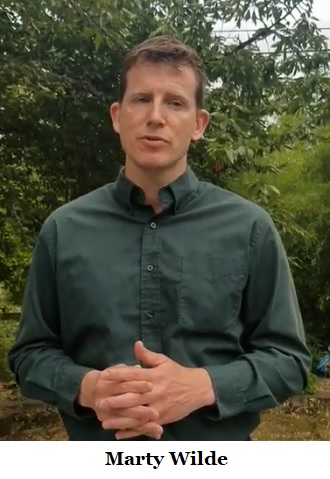 Post an Event
Post an Event
| Benton County Republicans’ Private Fundraising Event, “Bent-on Boots and Bling” with Trey Taylor |
| Friday, September 5, 2025 at 5:00 pm |
| Featuring Trey Taylor
Music Private Event
Friday, September 5, 2025 5:00-5:30 pm VIP Reception
5:30-8:00 pm Heavy Appetizers,
Auction, Concert
Red: $750 VIP Reception
Front Row Table Sponsor
White: $500 Table Sponsor
Blue: $50 per person
Limited Seating. Get Yours Now!!!
Support Local
Dress up: Bling, Cowboy, Patriotic Benton County Republican
FUNDRAISER
www.BentonGOP.org
Get your tickets today at:
https://www.bentongop.org/event-details/benton-county-republicans-fundraiser/form
About Trey:
Trey is the youngest African American Man in Country Music History. The Denver Post wrote
"It's impossible to miss his enthusiasm. With a fondness for cowboy boots, gaudy colors and dazzling jewelry, Trey Taylor could stand toe to toe with any of the Pop, Country or even Rap
contemporaries of his generation.“ |
| Trysting Tree Golf Club, 34028 NE Electric Rd., Corvallis |
They dig a hole right back into a class society
Waiting in the wings for a work session is
HB 2991, introduced by Barbara Smith Warner (D-Portland), seemingly a
spokesperson for BIPOC. The bill requires the Legislative Policy and Research Office to prepare an estimated racial and ethnic impact statement, if requested by a member or committee of the Legislature to determine the effect on “traditionally marginalized groups.†If a negative impact is estimated, the bill cannot be moved to the floor of either chamber.
For many years, bills were required to have a fiscal impact statement -- what the cost was expected to be for state government -- and a revenue impact statement if either were applicable. Recently, bills are required to have an Open Government Impact Statement. Perhaps we're seeing the mushrooming of different kinds of "statements" that need to follow bills around. One can imagine a "Carbon Footprint" statement, but let's not say that too loudly.
What might seem to be beneficial for the “traditionally marginalized groupsâ€, could have grave unforeseen consequences. These groups are defined as:
(a) Women
(b) Persons with disabilities
(c) Blacks or African-Americans
(d) Hispanic or Latinx persons
(e) Asians or Pacific Islanders
(f) American Indians, or
(g) Alaska Natives
The statement is to be “impartial, simple and understandable†including the “methodologies and assumptions used in preparing the estimate.†But then it violates its own “impartial†requirement by “including a description of any consultation with community-based organizations or persons with expertise in the impact of implicit or inherent bias on traditionally marginalized groups.†Where is the impartiality when only the marginalized communities are consulted?
To further restrict the bills being introduced, the committee must consider ways to eliminate or mitigate the estimated negative impact on any “traditionally marginalized groups,†and must be resolved for a positive impact before it can be moved to the floor for a vote. Why not make this a resolution for everyone?
A D V E R T I S E M E N T

A D V E R T I S E M E N T
These statements would be very time consuming to document a subjective guess that has no basis in fact, and make it look impartial with an underlying assumption that all bills will be partial to the “traditionally marginalized†with a blind eye to equity. At what point does it become "reverse discrimination?" When there is an overwhelming benefit or handout to the 'underprivileged' ‘underserved’ to such an extent that it affects every law, then socialism has taken control. Oregon's population is 85.06% white. So, the under-represent is 15% of the total population. How much does the 85% have to give through taxes, jobs, opportunities, businesses before it violates the 14th Amendment to the U.S. Constitution. which says: “No State make or enforce any law which shall abridge the privilege or immunities of citizens of the United States; nor deny to any person within its jurisdiction the equal protection of the laws.†Public policy covers everyone equally and when you start naming a group, it is no longer equality.
As much as BIPOC wants to equalize social and economic circumstances, the more they dig a hole right back into a class society that is kept by government. When the free market is manipulated with estimates aimed at a specific group, the results are never economically sound.
--Donna Bleiler| Post Date: 2021-03-31 08:57:43 | Last Update: 2021-04-01 15:15:18 |
A machine is doing the required reading of the bills.
Last week the Oregon House due to confirmation of an individual testing positive for COVID-19. The individual had been present on the House floor on the 15th and 16th. Legislators were notified on the 22nd at the end of the first House floor session of the day. All other House floor sessions for the week were canceled.
This week House Speaker Tina Kotek (D-Portland) had planned daily double floor sessions to start moving the flow of backlogged bills. However, Sunday afternoon, Lindsey O’Brien, Chief of Staff for Speaker Kotek sent out an email to members saying in part:
With another confirmed COVID case, floor will be effectively canceled tomorrow (Monday 3/29).
In addition, the Speaker has directed the Clerk to begin using computer software to read lengthy bills upon final passage to further reduce the risk of virus transmission when the House is in session for the purpose of bill reading.
The requirement to read bills aloud before the final vote on the House or Senate floor is imbedded in the 1859 Oregon Constitution. However, it can be suspended by a vote of 2/3 in order to save time. In the House that is 40 votes. In the Senate it is 20.
After the Supermajority Democrats adopted rules this session allowing the Speaker to fine unexcused lawmakers up to $500 a day, essentially ending the walkout option, the Republicans turned to the Constitution to slow the movement of bills. This is one of the few remaining tools available to Republicans, who hold 23 seats in the 60-member House. Last week, House Minority Leader Christine Drazan (R-Canby) reiterated this to Speaker Kotek expressing that bills were moving too fast through committee with little public input. She said, “As long as the building is closed to the public and deeply controversial legislation continues to be fast-tracked in committees, we will continue to depend on the Constitution, to remind the supermajority we should not operate like it’s business as usual while the public is shut out."
This rational has not set well with Democrats. During a floor session earlier this month, House Majority Leader Barbara Smith-Warner (D-Portland), expressed her displeasure with the Republican tactic by stating “It is so disappointing that, yet again, we are being forced to read non-controversial bills on the floor to delay the legislative process. This feels like another tactic designed solely to slow down the process of doing the people’s workâ€. She went onto say that “the work we are doing here is criticalâ€.
However, just days later,
HB 2060, which was only 11 pages long, was read in its entirety and took only approximately 15 minutes. After the reading, Representative Smith-Warner made a motion to send the bill back to the Rules Committee. Representative Smith Warner is Chair of that committee. She noted that “there are a few items in this bill, that given further review, we believe, need some more work, so we are hoping to send it back to rules.†This begs the question; if this bill had not been read in its entirety for the third time before the vote, would the flaw in this bill have
been corrected once it reached the Senate? If adequate time and testimony are being given in committee, why was this not caught before sending it to the floor?
Also, according to a spokesperson for House Speaker Tina Kotek, the rationale behind the computer voice being used for third readings was “to reduce the risk of COVID-19 transmission for everyone who works in the chamber. However, as the House got back to business on Tuesday morning, the Clerk was present on the floor and continued to read the messages from the Senate, first and second reading of bill titles, of which there were 73, as well as a proposed amendment change to the House Rules. Only the third reading of the bills was placed on the computer.
A D V E R T I S E M E N T

A D V E R T I S E M E N T
When it was time for the 3rd reading of the bills, Representative Power (D-Milwaukie) tried to move the first bill of the day,
HB 2111, back to committee in order avoid the mandatory 3rd reading of the bill before the vote. The motion failed on party lines. Motions to rerefer need 40 of the 60 votes.
Rep. Smith-Warner then moved to suspend the rules for the reading of the bill in its entirety for today only, but again the motion failed due to it needing 40 votes.
The computer system then began reading the first bill of the day,
HB 2111 which is 170 pages long and “Changes the name of Oregon Liquor Control Commission to Oregon Liquor and Cannabis Control Commissionâ€. As Representative Smith- Warner said, “the work we are doing here is criticalâ€.
--Terese Humboldt| Post Date: 2021-03-30 18:31:30 | Last Update: 2021-03-30 19:01:34 |
Hard-core legislation is starting to move
As strongly partisan Democrat bills inch toward the finish line, Republicans in both chambers have been using multiple tools to stop what they consider to be legislation harmful to the state.
SB 554 was slowed in the Senate as six Senators walked out and the remainder engaged in procedural slowdowns on the floor of the Senate. The bill barely passed the Senate anyway with 16 yes votes. It has moved to the House, where it has been read for the first time. It has not yet been assigned to a committee.
House Republican Leader Christine Drazan (R-Canby) indicated that Republicans were about prioritizing 2021-2023 budget bills in the Oregon Legislature, saying, “As legislators, our priority is to help Oregonians with programs and support that they need, especially after a year of the pandemic and natural disasters,†said House Republican Leader Christine Drazan (R-Canby.) “Part of this commitment is to ensure we have a balanced budget prior to our constitutional deadline before adjourning this session. That’s why today Republicans committed to suspend third readings of 2021-2023 budget bills, which ensures we prioritize critical funding for Oregonians.â€
Republicans have the option of using other slowing tactics like having every member speak on every bill and making motions regarding the status of the bill. These tactics have the effect of slowing down legislation in general as well as creating a bargaining token to give back in exchange for killing some piece of legislation.
--Staff Reports| Post Date: 2021-03-30 17:17:33 | Last Update: 2021-03-30 17:40:23 |
The victims we serve deserve better
Eight of the nine Female District Attorneys from across Oregon released a
joint statement accusing Senate and House Democrats of proposing bills that would threaten the safety of Oregonians.
“We should not return to the days when a rapist would merely receive a probationary slap on the wrist or the man who nearly killed his wife would be simply admonished to ‘walk away next time she pushes your buttons’,†stated the news release from the Marion County District Attorney’s Office.
“This statement is a compelling and powerful condemnation of attempts to repeal Measure 11,†said House Republican Leader Christine Drazan (R-Canby.) “We should listen to these women and abandon dangerous plans to remove these protections for crime victims and communities.â€
Outlined in the release are four bills that would fully repeal Ballot Measure 11, which provides a crucial safeguard for the public:
SB 191,
SB 401,
HB 2172and
HB 2002
“Our criminal justice system can always get better. And while we support smart, responsible policies that can make the process more equitable and fair for all, repealing Measure 11 does not do that. And the victims we serve deserve better,†added the District Attorneys in their release.
The signers include:
Paige Clarkson, Marion County DA & Oregon District Attorney’s Association President
Lanee Danforth, Lincoln County DA
Rebecca Frolander, Wallowa County DA
Beth Heckert, Jackson County DA
Gretchen Ladd, Wheeler County DA
Kelsie McDaniel, Union County DA
Patty Perlow, Lane County DA
Carrie Rasmussen, Hood River County DA
--Staff Reports| Post Date: 2021-03-30 12:53:03 | Last Update: 2021-03-30 13:51:12 |
The case involves racketeering, fraud and violation of civil rights.
Staci Trees isn’t the first Oregon public employee to file suit against her union over its refusal to grant her opt-out request. Nor is hers the first instance of the union clearly forging a signature on a membership form so it could continue to confiscate dues from a worker who no longer wanted to pay.
But
Trees’ case is the first to invoke the Racketeer Influenced and Corrupt Organizations (RICO) Act, alleging the union engaged in a pattern of fraudulent activity victimizing both her and other
union members.
The lawsuit was filed on March 29th in U.S. District Court in Eugene by the Freedom Foundation, a national nonprofit watchdog organization specializing in public-sector union abuses. It names Service Employees International Union 503, the Oregon Department of Administrative Services and its director, Katy Coba, as defendants.
Trees, employed by the Oregon Department of Transportation, was required to either sign a union membership card or pay an agency fee to SEIU 503 when she was originally hired in 2009. But in June 2018, the U.S. Supreme Court affirmed in Janus v. AFSCME that mandatory union membership, dues and fees in the public sector are a violation of the worker’s First Amendment rights.
Within a month, Trees contacted the union and requested her release.
After numerous delays, SEIU 503 finally canceled her membership in December 2020. But Trees was informed in an email that the union would continue deducting around $100 a month in dues until at least February 2021 because, under the terms of a new agreement she signed in 2016, all memberships would be renewed automatically unless the worker opted out during an annual two-week window.
Trees, however, couldn’t remember signing such an agreement and, when she demanded to see it, not only had her signature been forged, but important personal details had simply been made up.
“If Staci Trees was the only person this had ever happened to, you could conceivably blame it on inefficiency or incompetence,†said Freedom Foundation attorney Rebekah Millard. “But this isn’t an isolated case.â€
The Freedom Foundation is currently litigating four other forgery cases involving SEIU 503 in Oregon and has taken action in more than a dozen total forgery cases involving public-sector unions on the west coast.
“This is a pattern of behavior,†Millard continued. “This is how government unions are responding to Janus — by intimidating employees, lying or suppressing the truth about their rights and fighting every single attempt to opt out.
A D V E R T I S E M E N T

A D V E R T I S E M E N T
“And when all else fails,†she said, “they simply forge their signature on a phony contract, locking employees into new terms they never agreed to.â€
Millard said SEIU’s actions violate both
state and
federal RICO laws because the union issued numerous electronic communications that fraudulently claimed Trees authorized deductions she didn’t.
Moreover, the complaint cites four other current lawsuits in which the SEIU 503 engaged in similar behavior against other Oregon public employees.
“It's time for the courts to recognize these are not isolated instances and take action to hold SEIU 503 accountable,†said Jason Dudash, the Freedom Foundation’s Oregon director. “And that’s just what this lawsuit is intended to do.â€
--Staff Reports| Post Date: 2021-03-30 09:07:04 | Last Update: 2021-03-29 21:53:03 |
Does Oregon need an Independent Scientific Review Board?
In 2015, the Oregon Legislative Assembly enacted
SB 202 establishing the Task Force on Independent Scientific Review for Natural Resources. The Task Force evaluated and assessed the need for independent science reviews in Oregon and made recommendations to the Governor and appropriate legislative committees.
In 2017,
SB 198 was introduced and would have created a permanent Oregon Independent Science Review Board. However, it only received a single public hearing and never moved out of committee. During the hearing, several natural resource organizations submitted joint testimony in opposition to the bill. They shared that “While we appreciate the Task Force's effort to design an independent and unbiased scientific review process for Oregon, given the extraordinary difficulty of eliminating perceived bias, we are highly skeptical that this process will produce any kind of consensus around answers to politically charged "high impact" questionsâ€.
Currently, Representative Holvey (D-Eugene), believes that
SB 198 from 2017 deserves to be revisited and has introduced
HB 2386. The bill is almost identical to the 2017 legislation. It is summarized as:
“Establishes Oregon Independent Science Review Board. Establishes Independent Scientific Review Secretariat as administrative section within the Institute for Natural Resources at Oregon State University. Establishes Independent Scientific Review Fund. Continuously appropriates moneys in fund to Higher Education Coordinating Commission for distribution to Oregon State University for purposes of board and secretariat. Declares emergency, effective on passageâ€.
The bill received a hearing earlier this month and was again opposed by the same group of natural resource advocates as in 2017. The major concerns were similar but also emphasized the current climate that Oregon is facing.
- With current budget constraints, this is not the right time to make this investment – The Legislature should focus funding on scientific research at our Universities not “think tank†reviews.
- Even with proper funding, eliminating bias and achieving consensus will be extraordinarily difficult.
- The “Independent Scientific Review†will likely fail to be truly independent. Board members serves at the pleasure of the Governor and therefore it’s impossible to ignore the possible influence the governor’s office may have on the outcome of “independent†reviews.
“Ultimately, this board risks becoming another place for special interest advocates to pursue changes to public policy by seeking the endorsement of a board appointed by a political office,†the coalition concluded.
A D V E R T I S E M E N T

A D V E R T I S E M E N T
William Edge from Oregon State University, who was on the original 2015, taskforce stated in testimony that “The task force concluded that most single agency scientific reviews can be met with existing State, Federal and academic resources, but we did find that review practices and capacity for conducting quality reviews varied substantially among agenciesâ€. The last statement he made were the same concern that the coalition, in opposition to the bill, had when raised when they stated, “The bill language fails to provide the board with direct oversight, limits to discretion, performance standards, legal obligations or overall best practices for scientific reviewâ€. Therefore, it appears that the concerns of Edge regarding agency lack of best practices are also the concerns of those opposed to the bill.
Several legislators asked questions of Edge during the testimony around, how things would be handled since science does not always agree, how industry experts would report to this board, and how the board would assess validity. Representative Susan McLain (D-Hillsboro) raised a concern that encompassed many of these feeling when she asked, “There are scientists all over the world and one panel of scientists in Oregon being the only place for us to have what we are considering to be ‘the science board’ or ‘the blue-ribbon board’, causes me some concern."
The bill is currently scheduled for a work session in the House Committee on Agriculture and Natural Resources on March 30 at 3:15pm.
--Terese Humboldt| Post Date: 2021-03-29 21:35:19 | Last Update: 2021-03-29 21:45:52 |
Survey shark says there’s blood in the water
Some would say that Democratic Party mismanagement of the state is what has attracted numerous Republicans to stick their necks out early and test the waters.
If you're on a desktop or laptop, you can participate in our informal poll, above, and let us know who you'd vote for.
Editor's note: if you're on a mobile device, you can vote next time you are at a laptop or desktop.
--Editor| Post Date: 2021-03-29 14:57:27 | Last Update: 2021-03-29 20:02:47 |
Deschutes County Sheriff responded
On March 28, 2021 at about 12:00 AM deputies from the Deschutes County Sheriff’s Office and Officers from the Bend Police Department were dispatched to a stabbing on China Hat Road near Sunset View Drive. A female witness called 911 and reported her friend was stabbed in the neck and the head by an unknown male.
Law Enforcement and Paramedics from the Bend Fire Department met up with the victim at the Walmart parking lot. The male was transported to St. Charles Medical Center in Bend with serious injuries.
Detectives from the Deschutes County Sheriff’s Office were called to conduct an investigation. The investigation determined that Reyes knew the victim and believed the victim was a witness in another criminal case involving Reyes.
Reyes met up with the victim and a female witness on China Hat Road with the purpose of assaulting the male, because Reyes believed the male gave information about him in the other criminal case.
When Reyes arrived, he and the victim got into a physical fight where the victim was eventually stabbed.
Deschutes County Sheriff arrested 33 year old, Anthony J Reyes.
The investigation is still ongoing. No further information is available for release at this time.
The sheriff’s office was assisted by Bend Police Department and the Bend Fire Department.
--Bruce Armstrong| Post Date: 2021-03-28 19:29:24 | Last Update: 2021-03-29 14:43:19 |
Five were nominated to replace John Lindsey
On Sunday March 28th, the Linn County Republican Party held a nomination convention to select five candidates to fill the remainder of John Lindsey’s term as Linn County Commissioner. Lindsey died March 9 of cancer. Seven applicants seeking the appointment provided resumes and were verified by the Linn County Clerk's Office, meeting the eligibility requirements outlined in state statute.
66 Elected Precinct Committee persons were credentialed by a volunteer delegation of officers from the Marion County Republican party and were deemed eligible to participate and vote in the nominating process. Following the official vote to accept the format of the meeting and the rules of the election, all seven candidates were allotted five minutes to speak. Following the speeches, ballots were cast, counted, and verified by the Marion County delegation to ensure a fair and un-biased process was followed as agreed upon by the committee.
The five nominees elected are Gary Betts, Ashley Haase, Greg Nevino, Will Tucker and Rex Watkins.
These five nominees will be submitted to the County Clerk for the Linn County Board of Commissioners to confirm an appointment from. State statute requires this process to be completed no later than April 8, 2021.
--Staff Reports| Post Date: 2021-03-28 17:01:32 | |
Interested residents in Clackamas County should apply
Clackamas County Commissioners are seeking interested residents to serve on county Advisory Boards and Commissions (ABCs). These ABCs offer residents the opportunity to become very involved in their community.
Individuals interested in this opportunity can
apply online or via a paper form that can be obtained from the Public and Government Affairs Department by calling 503-655-8751 or in person at the Public Services Building at 2051 Kaen Road in Oregon City.
The Clackamas County Mental Health and Addictions Council has 13 openings, each of which carries a three-year term. The council advises commissioners and the county Behavioral Health Director on community needs, gaps in services, barriers and priorities related to providing mental health and substance use services (including education, prevention and treatment), review grant proposals or other funding requests for state funds as required by ORS 430.350, and other grant requests as feasible, and provide a link to the community at large through advocacy, public information, and education.
The council has ten meetings that are scheduled each year on the fourth Tuesday of the month (no meetings in March/December) from 4:30 to 6:30 p.m. These meetings are currently being held virtually via Zoom.
If and when they go back to in person, the meetings will be held at our Clackamas County Mental Health Crisis Clinic at 11211 SE 82nd Ave, Suite O, Happy Valley, OR 97086.
More on the
Clackamas Mental Health and Addictions Council can be found online.
--Bruce Armstrong| Post Date: 2021-03-28 16:59:14 | Last Update: 2021-03-29 14:44:34 |
Saudi students aided in fleeing justice in Polk and Benton Counties
Recently, it was discovered that several Saudi Arabian college students studying in Oregon who had been charged with various felony level crimes had fled the United States before trial, with the help of the Saudi government. The students were all represented by Oregon attorney Ginger Mooney. At least two of the cases happened right here in Polk and Benton Counties.
What nobody has reported until now are the irregularities with the bail money that was paid by Ginger Mooney’s client, the Saudi government, to Oregon’s circuit courts. In at least one case, a large amount of bail money paid to the Polk County court is apparently unaccounted for.
It is a state-wide law (
ORS 135.280) that when a defendant out of jail on a 10% bail deposit fails to appear in court, the court must order that bail money forfeit -- even the remaining 90% that had not yet been paid. All of Oregon’s circuit courts and attorneys know exactly how to properly handle bail, which is why these two local Saudi cases stand out.
In the 2014 Polk case (No. 14CR30024), defendant Abdulaziz Hamad Al Duways was accused of violent sexual crimes against a fellow student at Western Oregon University. At his first appearance, then-Judge Sally Avera ordered bail set at $4.5 million. While that may sound like an appropriate amount of bail for such horrific crimes, it is actually wildly unconstitutional according to Oregon law -- which sets bail amounts by the offense charged. In this case, bail would normally initially be set at or about $1.25 million.
Judge Avera certainly knew that it was not constitutional, which calls into question what she thought she and court staff were doing.
At Al Duways’ next appearance, Ginger Mooney negotiated Judge Avera down to $500,000 -- a sum that the Royal Consulate General of Saudi Arabia agreed to pay, turning over the 10% deposit of $50,000 into the custody of Polk court staff.
When Al Duways was spirited back to Saudi Arabia and failed to appear in court, a month and a half after his release on bail, Judge Avera was required by law to immediately follow Oregon’s statewide bail procedures: She had a duty to send an official notice to the Saudi Royal Consulate, then release the $50,000 deposit to Oregon’s Department of Revenue, and then enter a court order compelling the Saudi government to pay the remaining $450,000 in bail money through the court, to be released to the Department of Revenue.
Instead, Judge Avera did nothing. She sent no notice, signed no order, failed to acknowledge the $50,000 that was already in the court’s possession, and failed to send a bill for the remaining $450,000 owed to Oregon by the Saudi government.
The fate of the $50,000 paid to the court remained entirely unknown until 2019, after Ginger Mooney and her Saudi cases was first reported by national and international media. That spring, I brought the issue of the unreleased bail money to the attention of Polk Trial Court Administrator Heidi Bittick, on the off chance that she had somehow overlooked it. Bittick refused to give a straight answer, and would state only that “$50,000 is being held in the state of Oregon.â€
A D V E R T I S E M E N T

A D V E R T I S E M E N T
Technically, that would not be a lie even if the money was being hidden in Bittick’s sock drawer. However, Bittick was terminated as Court Administrator shortly thereafter. In a Bureau of Labor and Industries complaint that Bittick filed in the wake of her termination, she claimed that she was fired by Polk Presiding Judge Norman Hill due to her “whistleblowing activity,†and that Judge Hill subjected her to “unwarranted discipline†regarding court cashbox money she discovered to be missing. The Saudi bail receipt was filled out by Bittick personally. Whether Bittick misappropriated the money herself or did so as part of a larger scheme is a question that may be answered by the records surrounding her termination. Except those records are unfortunately “confidential†according to the Oregon Judicial Department, who refuses to release them to the media or the public.
Other Saudi cases at Polk and other courts strongly suggest that this was just one episode of a repeated scheme to take custody of large amounts of Saudi bail money that would then be abandoned when the Saudi government predictably removed the defendant from the US, causing him to fail to appear in court.
Regarding Al Duway’s case in Polk, Judge Hill was recently notified that the court had failed to order the release of even the $50,000 deposit to the State of Oregon. Judge Hill has thus far also refused to act, or even acknowledge, that there is a problem in his courthouse regarding the disappearance of bail money.
The situation was slightly better in a 2014 case (No. 14CR16191) in Benton County, although the crimes charged were even more abhorrent: ten counts of encouraging child sexual abuse. That defendant, Waleed Ali Alharthi, was bailed out with another $50,000, again paid by the Saudi Royal Consulate.

It took another half-year for Alharthi to flee the same way Al Duways had, but he did so -- using his Saudi passport, even though it was supposed to be held securely in the custody of the court.
Unlike Polk County, the Benton court ordered the $50,000 deposit released to the State of Oregon immediately. But like Polk, Benton also refused to send the Saudi government the bill for the remaining 90% ($450,000) they owe to the State Oregon.
Even after the Benton District Attorney vehemently complained to the court about letting the Saudis off the hook for the $450,000, Ginger Mooney inserted herself into the discussion, confusing the matter and encouraging Judge Matthew Donahue not to follow Oregon law.
These two cases alone represent $1 million that should, by statute, have been used by the State of Oregon to support the Crime Victims Fund. The fund was set up by the legislature to help Oregonians victimized by criminals to recover mentally, physically, and financially from exactly the kinds of crimes these Saudi defendants were charged with -- and were enabled to escape trial for.
So far, only 5% of that million dollars has reached the Crime Victims Fund -- a mere $50,000, all of it from Benton. Polk still has not turned over a single penny.
If the law is not followed in extreme cases such as these -- in which defendants accused of horrific crimes are enable to flee back to a country they cannot be extradited from, such as Saudi Arabia which has no extradition treaty with the US, then when can the public count on Oregon’s courts and judges to follow the law?
If it takes only $50,000 to buy justice for a Saudi defendant accused of horrific sexual offenses, what else can criminals getting away with by leaving piles of cash unattended with the courts?
US Senators Merkley and Wyden have shown lasting concern and interest in these Saudi cases from an international perspective. They need to hear from the public that Saudi interference in Oregon’s court system is unacceptable.
--Stephanie Volin| Post Date: 2021-03-28 14:59:14 | Last Update: 2021-03-28 17:01:32 |
Delays in election counting and reporting erode confidence
Numerous bills are being introduced this Legislative session that would inject chaos into our election day calendar. Each bill as a separate issue, but it’s hard to get the big picture without talking about the overall effect.
After Election day, we already have a two week period to ‘cure’ ballots that were rejected for bad signatures or no signature at all. Maybe we should go back to in person voting so we can make sure their signature matches in the first place.
Representative Rayfield, Senator Dembrow introduced
HJR 11 that would allow same day voter registration. Do you want bus loads of people showing up to register to vote on election day? Its happened before.
Harney County Clerk, Dag Robinson sent in
testimony for
HJR 11 objecting to the bill. He cited two different instances where there were real threats to our Oregon election system from same day voter registration.
Now, we are considering letting ballots come in by mail up to 10 days after the election. What is the big push to do these things? After all, we have automatic voter registration.
Senator Knopp introduced
SB 694 which requires ballots for general and primary elections that are received after election to be counted if postmarked no later than Saturday before date of election and received no later than seven calendar days after election. Prohibits individual from collecting and returning ballot of other individual, subject to specified exceptions. Requires Secretary of State to submit biennial report to Legislative Assembly identifying name, address and birthdate of each individual who cast more than one ballot in single election during previous two years. Declares an emergency so it would be effective upon passage.
Representative Marty Wilde (D-Eugene) introduced
HB 2226. This bill requires ballots returned by mail to be postmarked not later than date of election. Requires county clerks to announce status of tally of ballots received after election date on third and eighth calendar days after date of election. Prohibits individual from collecting and returning ballot of other individual except on date of election. Applies to elections held on or after January 1, 2022.
A D V E R T I S E M E N T

A D V E R T I S E M E N T
Representative Dan Rayfield (D-Corvallis) also introduced
HB 2687 which requires ballots returned by mail to be postmarked not later than date of election. Requires county clerks to announce status of tally of ballots received after election date on third and eighth calendar days after date of election. Applies to elections held on or after January 1, 2022.
We already have early voting, nearly three weeks We don’t need to extend the time to get a ballot to the elections office so we have late voting too. There are drop boxes all over the county people can access in those last days.
Delays in election counting and reporting erode confidence and create opportunities for fraud. Besides, people want the results on election evening. Once results are known then there is knowledge of how many ballots are needed to change close races. Extending the time only gives opportunity to for clandestine ballots to manipulate the count.
It doesn’t make sense for good governance to inject opportunities to commit fraud.
--Janice Dysinger| Post Date: 2021-03-28 12:29:48 | Last Update: 2021-03-28 12:39:14 |
Read More Articles








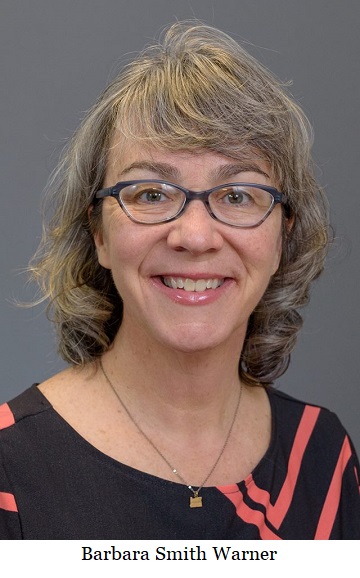

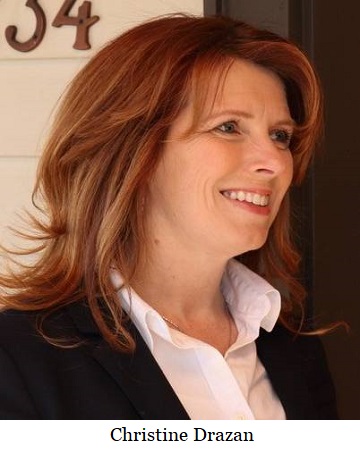
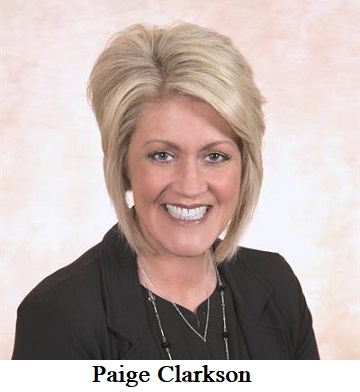
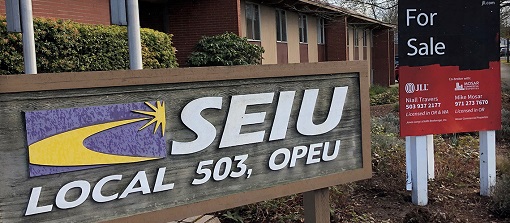




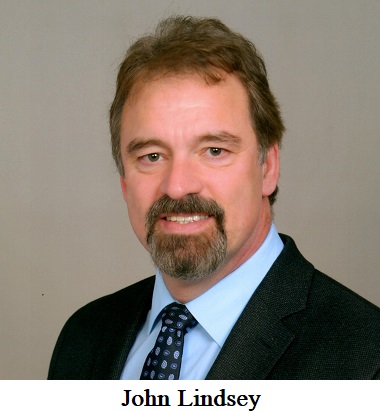



 It took another half-year for Alharthi to flee the same way Al Duways had, but he did so -- using his Saudi passport, even though it was supposed to be held securely in the custody of the court.
It took another half-year for Alharthi to flee the same way Al Duways had, but he did so -- using his Saudi passport, even though it was supposed to be held securely in the custody of the court.
